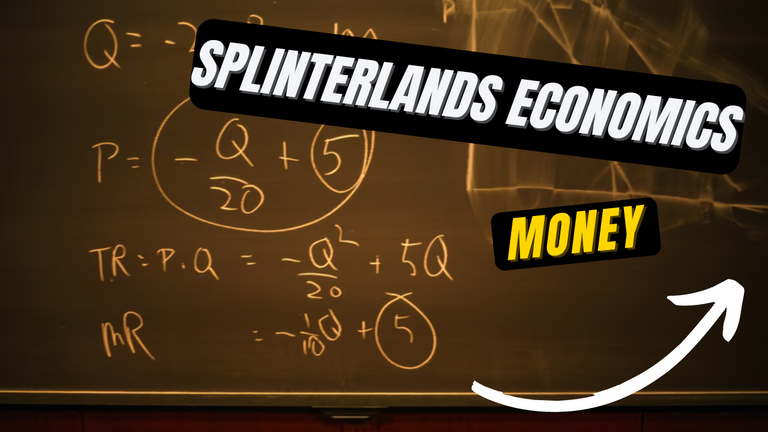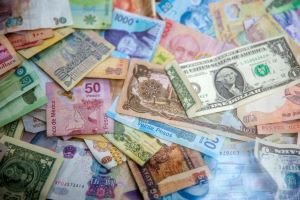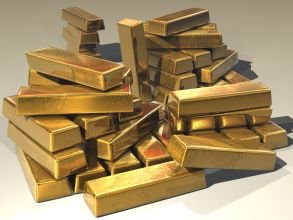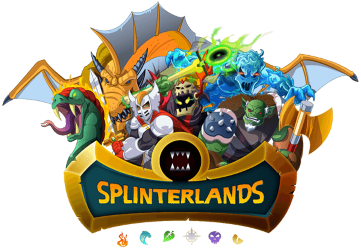Hello everyone! We are back again today with another edition of Splinterland Economics - a series in which we introduce a basic economic concept and then apply it to Splinterlands. If this is your first time reading, just to tell you a little bit about myself: my day job is in an unrelated area but I consider myself a little bit of economics nerd - I read a little (or maybe way, way) more news than I should, double majored in econ, and am obsessed with optimization. I love the way Splinterlands is equal parts card game and resource allocation game. My goal with these articles is to share a little bit of what I know with you all.
If you already caught a glimpse of our topic for today and thought "oh boy, this guy is just about out of things to write about", then I wouldn't blame you at all, but you couldn't be farther from the truth. The term we'll be discussing today is ubiquitous in conversations regarding finance, economics, and the crypto world, and was even the subject of an ABBA song. However, we use it so often that it is easy to forget its underlying meaning, and having a thorough understanding it is vital, particularly in light of current and upcoming events in Splinterlands. Today, we'll be talking about money!

What is money?
We often use the term "money" without actually thinking about what it is or exactly what the term means. In economics, as well as in our discussion for today, money is anything which may be used as a medium of exchange, a store of value, and a unit of account. Money allows us to carry out transactions much more easily than it would if we were to simply use the barter system for everything - it is simple for us to get paid for our labor and then use that pay (in the form of money) in order to purchase other goods and services. It would be much more time consuming (i.e., costly) if we had to figure out a direct trade with a seller and perform specific work for someone any time we wanted to purchase something (that would be what we call the "barter system"). Money also allows us to more easily assign prices to items and to hold on to value in order to use it later.
Historically, money would be made out of intrinsically valuable materials - for example, gold or silver, or would be "backed" with similarly valuable assets which would allow money to be exchanged for an amount of that asset (i.e., "the gold standard"). This both made currency difficult to counterfeit and ensured that it would be worth something. More recently, currencies which are not explicitly backed by anything, or "fiat" currencies issued by various countries or entities have become more common. These currencies only have value because people agree to conduct transactions with them and have faith in whoever issued the currency - for example, the current US dollar. Relative to backed currencies, fiat currencies tend to fluctuate more in valuation. When it comes to countries and economies this is not necessarily a negative thing, as it allows governments and central banks to have additional "levers" to implement their monetary policies. TOO MUCH fluctuation, though, can certainly have negative effects on money's ability to act as a store of value.
Do note that while in the crypto space we refer to "crypto" and "fiat" as completely different types of money, both currencies are similar in that they are commonly unbacked by any particular item and are usable purely because people chooses to spend and receive them. This makes it important for anyone issuing or managing money or some sort of currency to be transparent and have strong credibility, and I have written about it in the past, though we don't have enough time to go too deep into that subject today. Have you ever wondered why there have been so many advertisements and/or celebrity endorsements in the crypto area? This is why - crypto only holds value if people accept that it does!
How do we apply it to Splinterlands?
In addition to a multitude of different game assets, Splinterlands has several game cryptocurrencies - Credits, Dark Energy Crystals (DEC), and Splintershards (SPS). Notably, while all three of these currencies may be used for various purposes in the game, only one of them is intended to be "money" in Splinterlands. That currency? You probably already can figure this out once you take a second to think about it, but it is DEC.
Credits are usable for transactions but are consumed (or turned into DEC, depending on how you look at it) whenever they are used in a transaction. SPS is a potentially confusing case, particularly because it usable in some transactions - notably, Chaos Legion and the upcoming Riftwatchers presales, and Node licenses. However, the primary stated purpose of SPS is as a governance token.
One thing I will say is that while the Splinterlands development team is brilliant at many things (their great job of communicating with players and efforts in designing the game economy come to mind), they have not done a good job of maintaining DEC as a form of money. DEC's fiat value has varied dramatically over the past year as the result of the overall crypto environment and its participating in the SPS airdrop point system. To their credit, the devs have recognized that the airdrop point part was a mistake, and have taken steps to stabilize the value of DEC going forward by partially backing the value of DEC with company products and promising future conversion mechanics with SPS.
Why should we care?
It is important to remember that money is intended as a unit of exchange. While we may be able to use non-money items for a similar purpose, doing so can at times be inefficient. It is also a risk to use things for purposes which they are not designed for - particularly in the crypto world where things can move quickly. In crypto, a developer who changes the system of a currency in some way, for example, to be more in line with a published whitepaper, could be doing a "good" job for their project. But if you had made investments thinking of non-money items as money (or vice versa) then you may have unknowingly exposed yourself to risks which could easily wipe out your assets.
Understanding what money is and what its purpose is can help us to better evaluate where we are allocating our assets in order to make more informed decisions. For example, storing your money in your bank account (or in your mattress, perhaps?!?) is dramatically different from purchasing a unit of stock or some other security. That is not to say that you should never do one or the other, but it is crucial to be able to recognize the difference in order to understand what we are doing with our savings.
Thank you so much for reading all this way. Interested in seeing some more of my writing in the future? Be sure to give me a follow! In the meantime, if you'd like to see some of my recent posts:
Ant Got Nothing on This - Using Antoid Platoon in Battle! - Last week's battle challenge, featuring Antoid Platoon!
Splinterlands Economics: Rent - An overview of the concept of economic rent, and how we can use it in Splinterlands.
Splinterlands Economics: Signaling - An overview of the concept of signaling, and how we can apply it to Splinterlands.
Thinking about giving Splinterlands a try but haven't signed up yet? Feel free to use my referral link: https://splinterlands.com?ref=bteim, and be sure to reach out to me if you have any questions!
All images used in this article are open source and obtained from Pixabay or Unsplash. Thumbnails borrowed with permission from the Splinterlands team or made in Canva.





